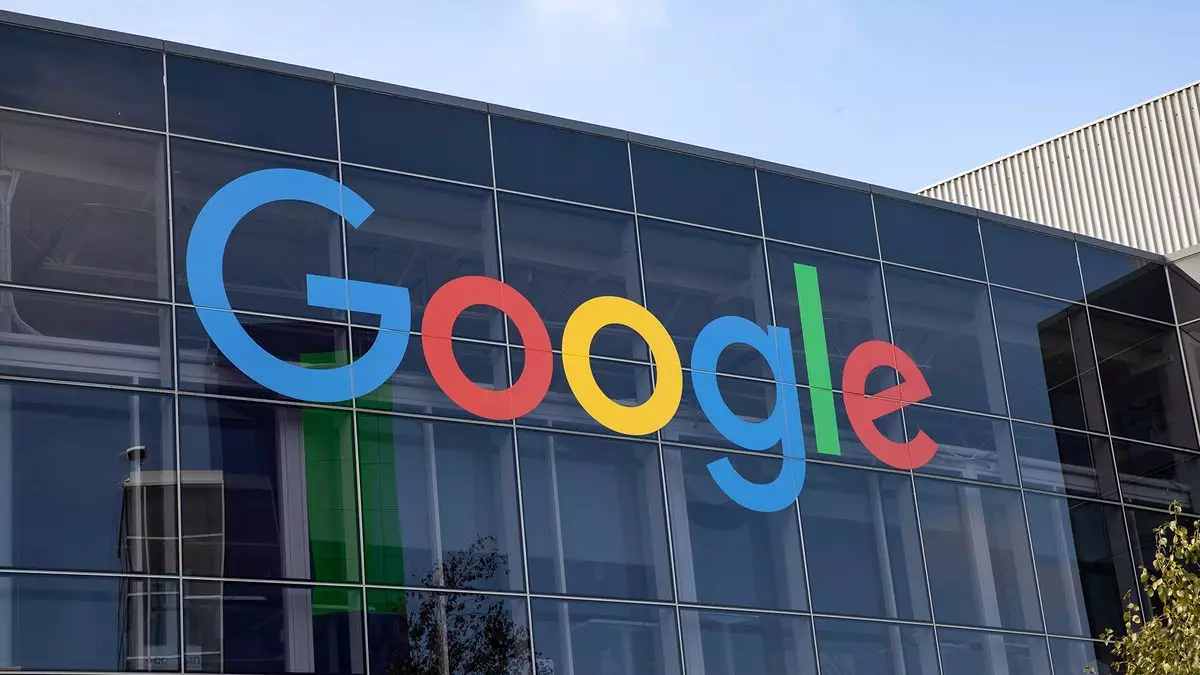In the fast-evolving landscape of technology, particularly in Silicon Valley, the financial stakes can reach dizzying heights, where millions appear trivial and billions barely register as significant losses. Recently, Google found itself at the center of this narrative, following a European court’s overturning of a hefty €1.49 billion antitrust fine imposed by the European Commission (EC). This decision, while relieving for the tech behemoth, illuminates the broader implications of antitrust regulations in digital markets and raises questions about corporate responsibility and market competition.
The original fine had been levied in 2019, after the EC determined that Google misused its dominant market position. The EC claimed that Google made it challenging for rival companies to advertise on platforms controlled by publishers with which they had contractual agreements. Specifically, the ruling highlighted Google’s tactics, such as imposing exclusive contracts that stifled competition and allowed it to monopolize premium advertising slots. The regulatory body accused Google of manipulating the advertising landscape to fortify its market dominance, leaving competitors at a severe disadvantage.
The recent overturning of this fine by Europe’s General Court reflects a legal interpretation that diverges from prior assessments. While the court upheld many of the EC’s findings related to Google’s practices, it emphasized the lack of conclusive evidence that these practices stifled innovation or diminished consumer welfare. Such a nuanced ruling underscores the challenges regulatory authorities face in proving antitrust violations in rapidly changing digital economies. The court’s decision implies that, despite monopolistic behaviors, proving concrete harm to competition and innovation is arduous, raising doubts about the effectiveness of current antitrust frameworks.
This legal battle places Google in a complicated position. While the recent victory may appear to alleviate immediate financial pressures, the tech giant remains embroiled in a wider series of antitrust disputes. Just a week prior, the company was unable to have another, more significant, €2.4 billion fine overturned, highlighting the ongoing scrutiny over its business practices. Additionally, recent judgments in the United States, including a ruling that deemed Google’s behavior as violating antitrust laws, further complicate its legal landscape. The Department of Justice has also raised alarms over accusations that Google has engaged in a systematic effort to dominate digital advertising tools, which paints a troubling picture of the company’s competitive strategies.
The rescinding of the €1.49 billion fine is part of a broader narrative around the intersection of technology and regulatory oversight. It raises questions about the efficacy of existing antitrust laws, particularly in an era where the digital market evolves faster than legislative frameworks can adapt. As Google’s legal victories stack up, they offer a glimpse of the challenges regulators face in trying to rein in corporate giants. The complexity of proving harm in intangible markets necessitates a re-evaluation of how antitrust laws are applied to tech firms.
This situation also highlights a dichotomy between large corporate entities and regulatory bodies, as well as the ethical considerations at play. As dominance in the tech sphere grows, so too does the responsibility of these companies to foster competitive markets and protect consumer interests. Unfortunately, the messages conveyed by judicial decisions can send troubling signals about the balance of power within the economy. This dynamic raises significant concerns about consumer welfare and innovation—two pillars that antitrust laws aim to protect.
As technology continues to reshape industries, the dialogue surrounding antitrust regulations becomes increasingly relevant. Google’s recent legal win offers a moment of respite for the company, but it is merely a chapter in an ongoing saga of corporate accountability and economic fairness. For regulators, the task is twofold: crafting effective policies that can keep pace with technological advancement while ensuring that fairness and competition are preserved in the marketplace.
While Google’s legal victories may seem significant in isolation, they are set against a backdrop of broader systemic issues within the realm of digital advertising and market competition. The journey to navigate the intricacies of antitrust law within an evolving digital landscape is one that requires careful consideration and proactive engagement from both regulators and corporations. Balancing innovation, corporate ambition, and consumer welfare will ultimately define the future of antitrust enforcement in the digital age.


Leave a Reply